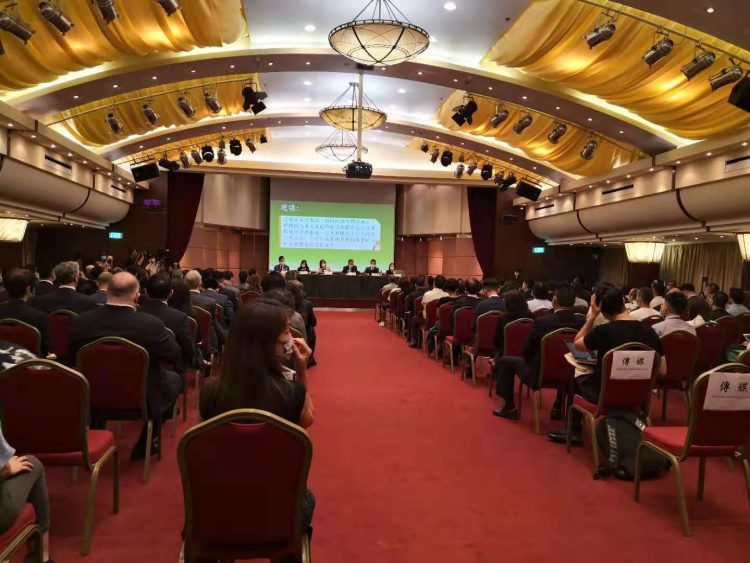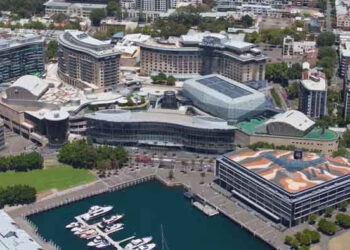Macau’s Gaming Inspection and Coordination Bureau (DICJ) told senior representatives of the city’s gaming industry on Monday that it will consider both Macau’s employment market and ROI for investors in determining the length of licenses to be issued under the upcoming re-tendering process for Macau’s gaming concessionaires.
The update formed one of the few pieces of new information provided by the government during a face-to-face consultation with Macau’s casino and junket operators, held yesterday on the fifth floor of the DICJ offices at the World Trade Center on the Macau peninsula as part of the 45-day public consultation process announced last week to consider proposed amendments to the gaming law.
The DICJ also confirmed its intention to scrap the city’s sub-concession system, warning that it could create instability by noting such a system could in theory lead to the issuance of any number of sub-concessions or even sub-sub-concessions.
In determining the duration of licenses, which could be reduced from the current 20-year term, the DICJ said it would consider ROI for investors – a positive sign all round given recent concerns exhibited by the stock market, which saw 26% stripped from the value of Macau’s casino companies in just 24 hours last week.
Notably, the DICJ also said it was still considering whether, and if so how, a law requiring a minimum 10% of share capital be held by Macau locals needs to be amended after SJM’s Rui Cunha asked for more clarity. This alone suggests the government remains at least somewhat flexible when it comes to amending Macau’s gaming law.
Originally scheduled to run for two-and-a-half hours from 3pm, Monday’s consultation ran for just 70 minutes instead.
IAG arrived at the Lotus Room on the 5th floor of the DICJ’s World Trade Center office at 2:30pm and proceeded to catalog a veritable who’s who of the Macau gaming industry, complete with their various corporate entourages, file into the room. All seemed keen to learn more about the amendments and to be seen to be supportive of the Macau government process.
Although a sizeable number of company CEOs were in Hong Kong and unable to attend due to the short notice of just six days (Macau currently has a 14-day quarantine period for arrivals from Hong Kong), those who did fill some of the 190 seats on offer in the room included Kevin Kelley, Neto Valente, Bob Drake, Raymond Yap and Buddy Lam from Galaxy Entertainment Group; David Sisk and Raymond Lo from Melco Resorts; Han Tian, Catarina Lio and Irene Wong from MGM China; Dylan Williams and Sam Chong Nin from Sands China; Rui Cunha and Frank McFadden from SJM; Linda Chen, Ian Michael Coughlan, Maggie Guan and Katharine Liu from Wynn Macau; Tak Chun CEO Levo Chan; Suncity Group CFO Philip Wong and Paradise Entertainment Group’s Jay Chun.
Most arrived considerably early and there was unmistakable tension in the room before proceedings kicked off precisely at 3pm, starting with a 20-minute PowerPoint presentation by the Chief of the DICJ’s legal division, Hoi Song U. The presentation essentially mirrored the consultation document released in the late afternoon of 14 September.

At 3:20pm, a question-and-answer session began – initially with those who had pre-registered their intention to ask a question, followed by questions without notice from anyone present in the room. Each of Macau’s big six concessionaires used their “question” as an opportunity to essentially deliver a speech of five minutes or so, addressing the panel which comprised three representatives of the DICJ, including director Adriano Ho, and three representatives of the Secretary of Economy and Finance.
The DICJ director remained completely silent throughout, never uttering a word, leaving the speaking predominantly to two representatives from the Office of the Secretary for Economy and Finance – Chief of Office Ku Mei Leng and consultant Ian I Lin.
Notably, five of the six concessionaire statements contained no real questions or comments on the proposed gaming law amendments. Some made respectful requests for more clarity on some of the proposals, some mentioned the short notice gave little time to prepare questions and some mentioned their intention to follow up with written submissions to the DICJ later in the 45-day consultation period. No doubt the presence of the media in the room dampened any desire of the concessionaires to raise substantive questions or push back against any of the government’s proposals.
 The one exception was SJM’s Rui Cunha, who while also confirming the company’s intention to later submit a written document, did specifically note that a short license period would be perceived negatively by investors. In line with the other concessionaires, Cunha asked for more clarity on several matters raised in the consultation document, including the promotion and support of local employees, the proposed additional capital requirements for concessionaires, and the proposed increased Macau local shareholding requirement. He raised the question of whether “Macau local” simply meant Macau permanent resident.
The one exception was SJM’s Rui Cunha, who while also confirming the company’s intention to later submit a written document, did specifically note that a short license period would be perceived negatively by investors. In line with the other concessionaires, Cunha asked for more clarity on several matters raised in the consultation document, including the promotion and support of local employees, the proposed additional capital requirements for concessionaires, and the proposed increased Macau local shareholding requirement. He raised the question of whether “Macau local” simply meant Macau permanent resident.
However, all six concessionaires overwhelming reserved their time to emphasize their agreement that the 20-year-old Macau gaming law needed updating for the present-day circumstances of Macau and their support for the proposed changes and general thrust of the consultation document. They also made the usual platitudes we have come to expect – support for the Macau and central governments, the Greater Bay Area development concept, the Guangdong-Macao In-Depth Cooperation Zone in Hengqin, the diversification of the Macau economy and the social stability of Macau society. The concessionaires also acknowledged their corporate social responsibility (CSR) obligations such as supporting SMEs, local procurement, and various employee welfare development, cultural and sporting initiatives.
Speaking on behalf of the concessionaires (in order of appearance in the session) were Raymond Lo of Melco (who spoke in Cantonese), Linda Chen of Wynn (who spoke in Mandarin), Rui Cunha of SJM (who spoke in Portuguese which was then translated by an assistant into Cantonese), Han Tian of MGM (who spoke in Mandarin), Buddy Lam of Galaxy (who spoke in Cantonese) and Dylan Williams of Sands (who spoke in English which was translated into Cantonese by Sam Chong Nin).

There were, however, some substantive questions and proposals put forward by junket and agent representatives given proposed amendments to increase the potential criminal liability of concessionaires for the actions of junkets in their properties and to make accepting certain cash deposits a criminal offence under the gaming law.
On the topic of deposit criminalization, one junket representative suggested implementation of a mainland China-style “social credit” system for players to provide more clarity around their creditworthiness. He also proposed providing more open and convenient money exchange facilities to reduce crime related to “money exchange gangs”.
Tak Chun’s Johnson CHAN Ka Fai called on the government to address the ongoing issue of enforcement of gambling debts accrued legally in Macau, asking the Macau government whether they could work with the central government to aid enforceability in mainland China. The head of Lucky Star called for junket taxes to be based on money collected from players rather than on the result at the gaming table, presumably also referring to issues of bad debt.
No answer was given to these suggestions during the consultation session.
The Macau government is due to hold four more consultation sessions, all with the public, on 29 September, 9 October, 13 October and 19 October.






























